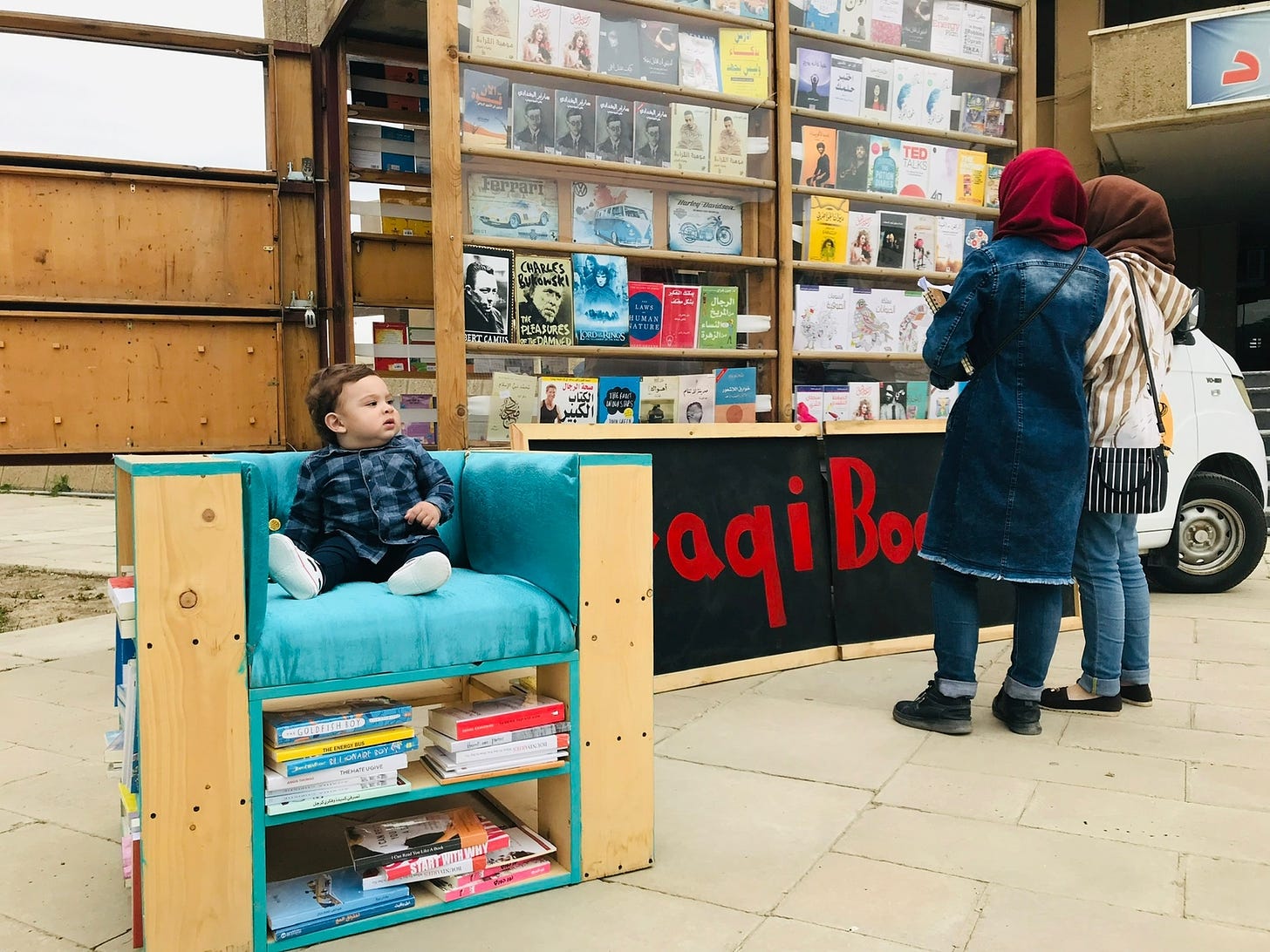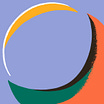Driving Back the Dogma: Baghdad’s Mobile Library
Ali Al Musawi refuses to be a mouthpiece for Iraq’s politicians. His organization Bookish is standing firm as censors close in from all sides.
The Bookish mobile library is a familiar sight in the streets of Baghdad. Several times a month, the rickety old van heads out, its trunk lined with shelves carrying works ranging from novels and poetry to political and scientific texts. When it turns into The University of Baghdad, hundreds of students are already waiting, eager to browse the latest titles and borrow or buy whatever takes their fancy.
“Bookish allows them to choose the books they like without any external influence – we don’t tell them what to read,” says Ali Al Musawi, founder of Iraqi Bookish. Freedom to access these titles is a rare treat for students in Iraq, where the threshold for books to be considered controversial is extremely low. While the Iraqi government does not ban books, influential groups enforce de facto censorship on volumes deemed irreligious or incompatible with their line of thought.
Al Musawi has often come up against these groups, suffering harassment and several arrests for refusing to meet their demands. “They wanted me to use my influence to promote the Iranian-Islamic way of thinking,” he says. Bookish book clubs often attract several hundred participants and Al Musawi is determined to maintain their atmosphere of open discussion and friendly debate.
“Some political parties are trying to intervene in Iraqi book clubs to control what people read. The harassment started when I refused to cooperate with them,” Al Musawi says. He has paid the price. His own work, The Talent of Reading, has been blocked from publication, forcing him to print copies in private and distribute them among friends. When he was arrested at the Baghdad Bookfair in 2018, friends pressured a senior minister to intervene before he was disappeared, like so many other outspoken activists campaigning for free thought and speech in Iraq.
On another occasion, he was placed under house arrest and only released after the media office of former Prime Minister Haider Al Abadi intervened. But Al Musawi refuses to be cowed into submission, partly because he feels it is his duty to defend the culture of reading in Iraq by offering opposing ideas to the limited selection imposed on the Iraqi public. “These people are killing our culture. What they offer is dangerous to society,” he says.
Books and reading have always been central to Iraqi culture. As the much-quoted saying goes, ‘Cairo writes. Beirut prints. Baghdad reads.’ But the rise in a more conservative way of thinking is driving a wedge between Iraq’s literary past and the forces shaping its future. Recent years have accelerated this shift as extremist entities capitalize on the power vacuum left by constant wars and corruption that have trapped Iraq in turmoil for decades. Al Musawi believes books are a powerful weapon against the dogma descending on Iraqi society – rays of light in a darkening ideological landscape.
“I want to spread the culture of reading in my society because here the libraries are closed, the bookshops are closed… no one is spreading hope in society after the war against ISIS,” he says. The Bookish book clubs are one of the ways he does that, giving children and adults a chance to engage with different ideas, including ones that might be considered controversial in mainstream society. It’s also about celebrating books and nurturing a love of reading, so that Iraq’s link with its literary past is maintained for future generations.
When he was forced to suspend the sessions due to Covid in 2020, Bookish enthusiasts bombarded Al Musawi with requests to start them up again. Now they are back to monthly meetups, but regulars want weekly sessions, something he is eager to do if funds can be raised. Last month, an Innovation Hub grant from Ideas Beyond Borders enabled Al Musawi to stage a special session, with live music, food, drinks and other entertainment contributing to the sense of community.
“These book clubs are a rare platform for the free exchange of ideas in Iraqi society,” says Faisal Al Mutar, President of Ideas Beyond Borders. “There are fewer and fewer places for people to access knowledge that political agendas haven’t shaped, and it’s vital to support these brave individuals as they stand up to the dogmas consuming this country’s culture.”
Al Musawi is seeking additional support to fund further book clubs for children and adults, as well as upgrade the mobile library van, which is in poor repair. The idea of halting these activities is inconceivable to Al Musawi, who feels the burden of expectation he has created by fueling people’s appetite for books and helping them sustain their love of reading at a time when Iraq’s longstanding love affair with literature faces mounting opposition.







